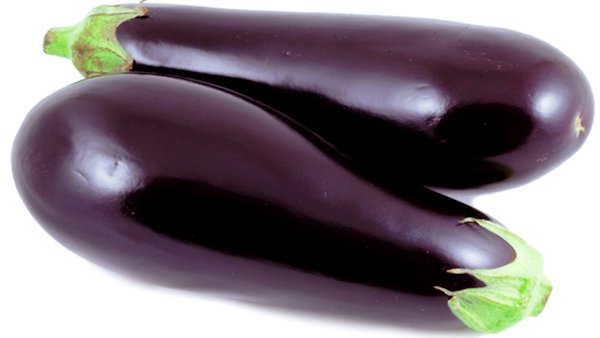5. Eggplant
Eggplants are temperature-sensitive vegetables that don’t respond well to refrigeration. Storing them at temperatures below 50 degrees Fahrenheit (10°C) can damage their texture and flavor, leading to a less desirable taste and a spongy or mushy consistency. Prolonged exposure to cold can also cause eggplants to develop brown spots and become discolored due to chilling injuries.
For optimal freshness, eggplants should be stored at room temperature in a cool, dry place, away from direct sunlight and heat sources. It’s important to keep them separate from other fruits and vegetables—especially those that produce ethylene gas like tomatoes, bananas, and melons—as this gas can accelerate ripening and lead to premature spoilage of the eggplants.
If you need to store eggplants for more than a couple of days, consider wrapping them in a paper towel and placing them in a perforated plastic bag to allow for some airflow while reducing moisture buildup. However, it’s best to use eggplants soon after purchase to enjoy their firm texture and subtle flavor. Avoid washing them until you’re ready to cook, as added moisture can promote mold growth and decay.
By storing eggplants properly at room temperature and away from other produce, you can preserve their quality and enhance the taste of your culinary dishes.












0 Comments